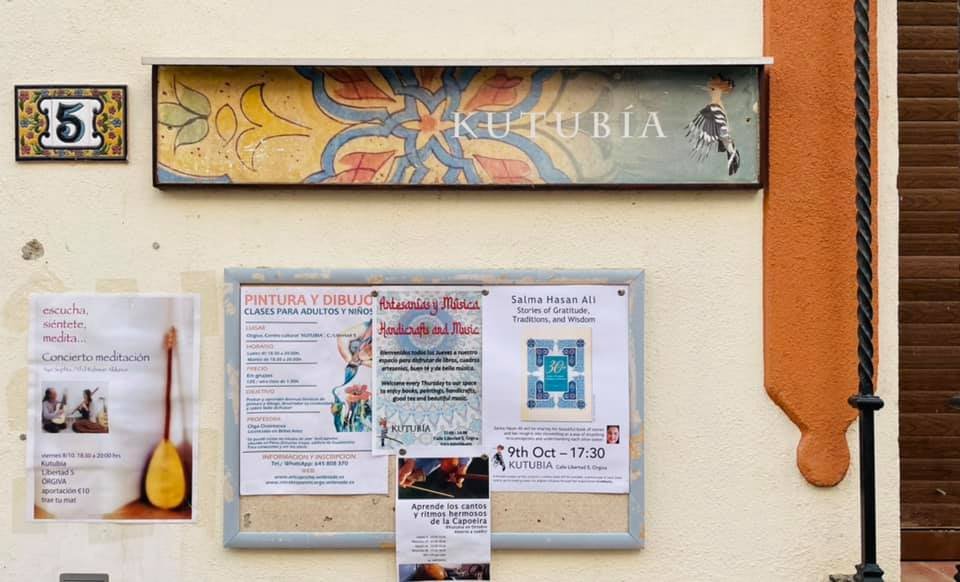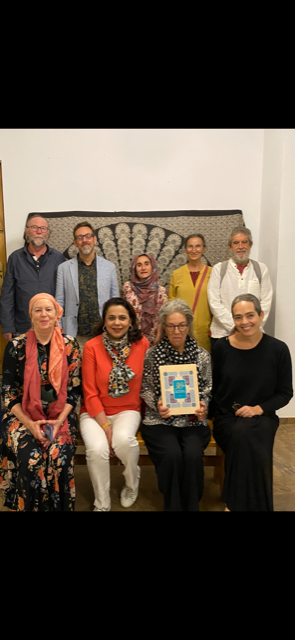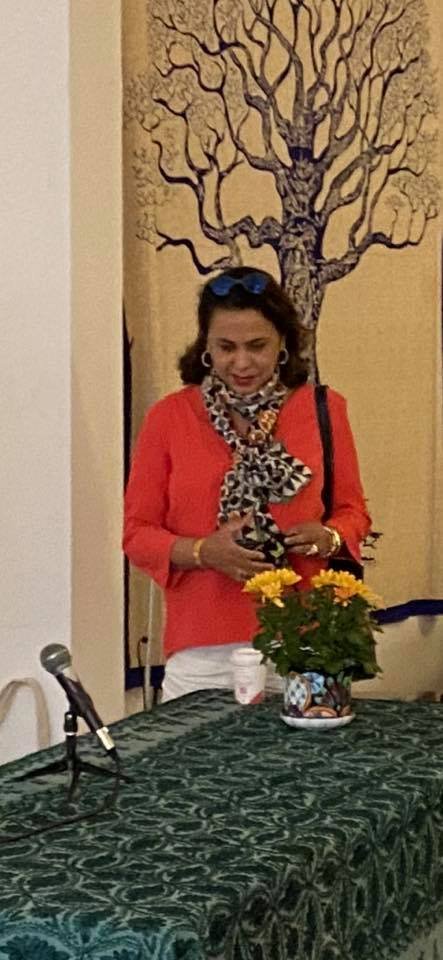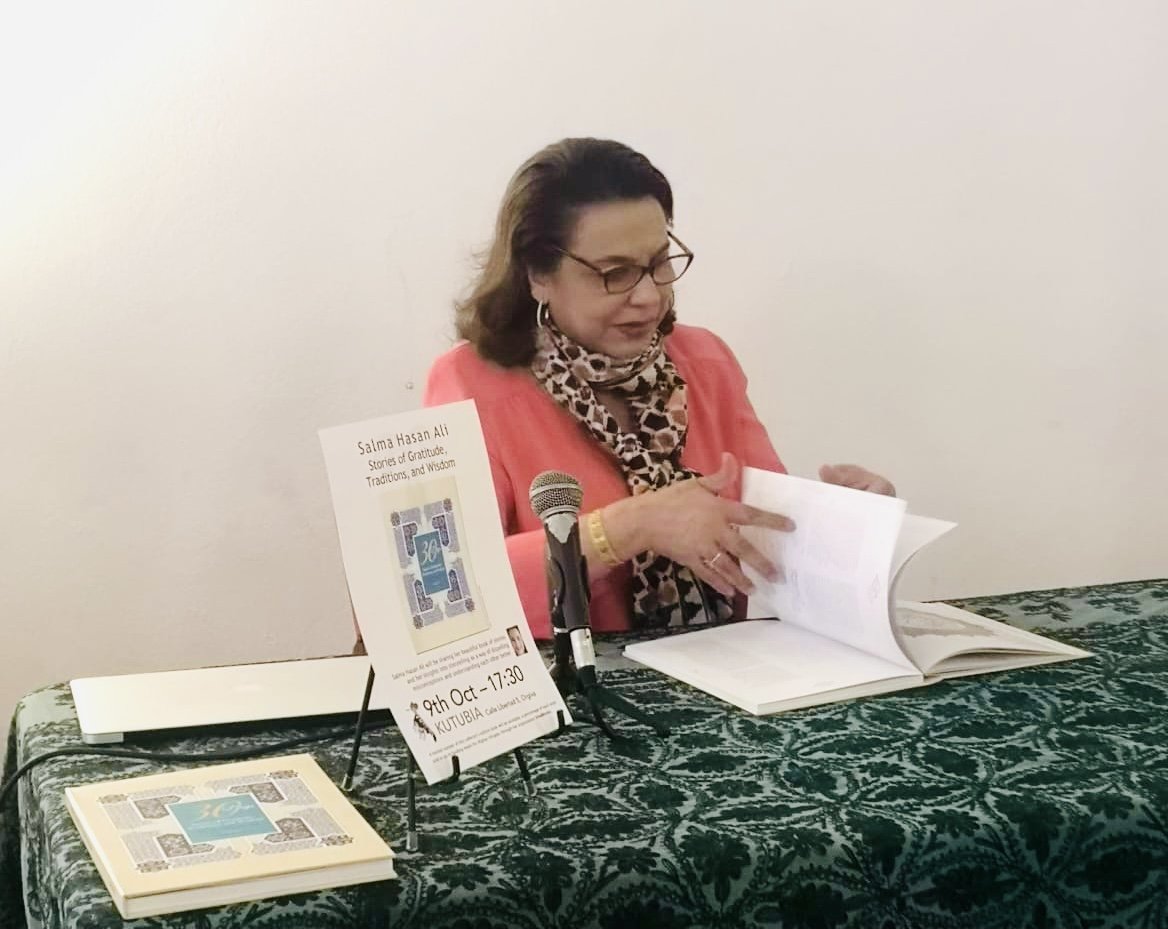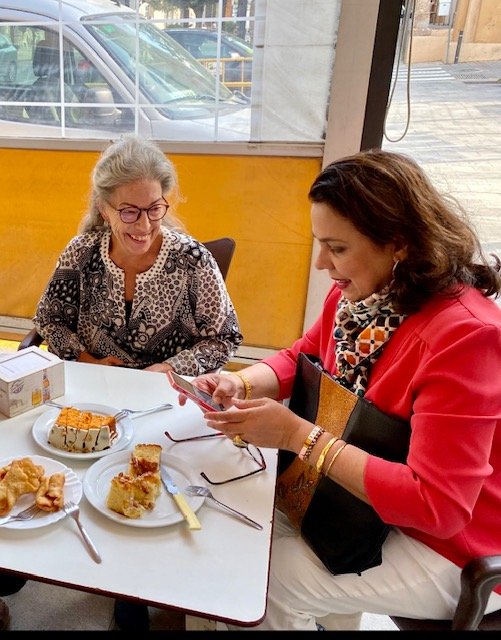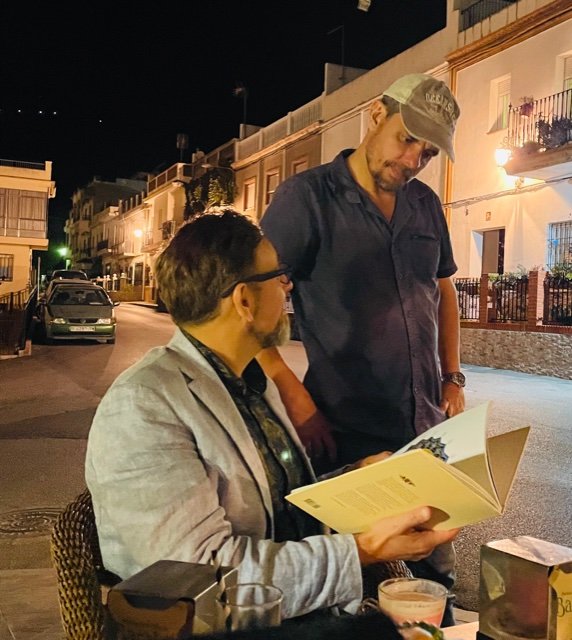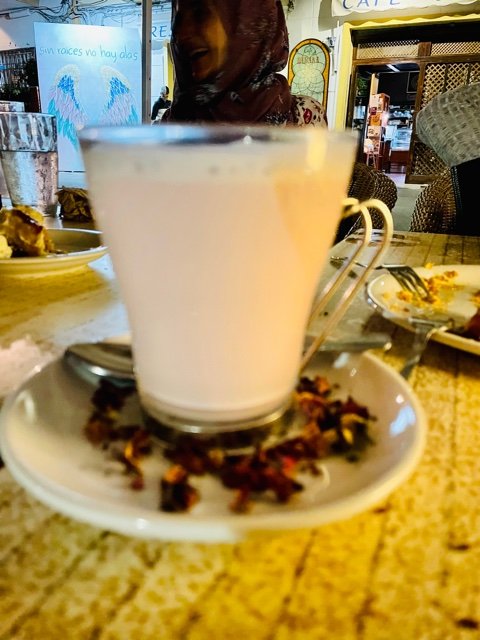Sharing Stories in Orgiva, Spain
It was an intimate group of Muslims and non-Muslims gathered at a center for learning and sharing of books and ideas called Kutubia, on a quiet cobblestone street in Orgiva about an hour southeast from Granada, nestled in the Alpujarra (the lower slopes of the Sierra Nevada). The billboard outside announced my talk. I had to take a picture; never in my dreams did I think I would get a chance to share my book in this beautiful, soulful corner of the world - once the center of Islamic art, architecture, thought, and power. Alhumdulillah.
The organizer apologized that there weren’t more people in attendance, as a dhikr was going on simultaneously. But ‘30 Days’ has never been about numbers or ‘likes’, but about impact and individuals. And had there been more people, I’m pretty sure we wouldn’t have cried together as we did - a group of strangers connecting over memories of our fathers.
I talked about the ’30 Days’ blog, its various themes and how it slowly grew, year after year, finding loyal adherents, drawn to the stories of who we all are, what we all value; how the book was destined to be, coming together in a couple of months, in the midst of a pandemic, because this is the time we need to hear stories of connection and commonality; of Sughra’s beautiful art and how she creates with crushed gemstones and a brush made of cat hair, and endless days and months of patience and precision; how these stories have helped soften hearts and forge connections where misunderstanding or distrust could have lurked – the true power of sharing personal stories.
And I shared stories from the book – Ali Keeler, the founder of the Al Firdaus Ensemble, who introduced me that day, on pausing during this challenging time and taking stock of where we’re heading; Peter Sanders, the most acclaimed photographer of the Muslim world, on accepting constriction so our spirit can begin to soar; Ebrahim Rasool, activist, politician, and former South African Ambassador to the US, on how the Quran served as his light in the dark of prison; my Dad on being overly kind, and always sharing cake. (Yes, I shed tears as I inevitably do when I speak of Dad, but tears are the words I can’t quite express.) Ali suggested we all say Sarah Fatiha for my Dad; we paused and prayed together.
After almost an hour, I asked if others would like to share; not an easy ask, we didn’t know each other after all. After a few minutes, someone, shyly, said my remark on how it’s through our ordinariness that we connect with each other resonated with her; she said she’ll try to open up more, to not allow others’ distance or distraction hinder hers, to share her own ordinary stories, too. [We’ve stayed in touch - it’s the most beautiful by-product of sharing my book around the world, so many meaningful friendships are developing.]
Munira shared a beautiful wisdom that she learned from her mentor, that still guides her today.
Ali shared a story he remembers hearing from his father and from Sufi tradition: a person was frantically looking for water; he kept digging holes all over the entire field. Someone walks past and he says “I can’t find the water!”. The person says, “try digging a bit deeper.”
“In life often when we think there’s no hope, there’s nothing to hold on to, it’s at that point that we have to keep going and keep going and keep going,” Ali said.
Another said the wisdoms from my father reminded her of her own father; he too had passed away recently. Growing up she remembered how her Dad would get up before Fajr to recite the Quran; her room door would be ajar and she’d hear his soulful prayers - “like music to wake up to” - and feel at peace. “I found him so courageous,” she said holding back tears, “and I would wonder how is he doing this,” because during the summer he would get up at 2am or 3am after going to bed at 11pm or 12pm, she explained. She shared another beautiful story of doing Umrah with her Dad. She was about 25, and had been raised to be independent, self-reliant. But during Umrah, with throngs of people surrounding her, she felt unsure, unsafe. Without having to say a word, her Dad sensed her unease and moved closer to her, shielding her with his body. When he sensed her ease, he slowly moved away. We all recited Surah Fatiha for her Dad, as we had for mine.
It’s what I dreamt this book could do – open people’s hearts to share what they keep deep inside.
Before we ended, Ali beautifully recited Surah Ar-Rahman (All Merciful) in Arabic, because he remembered the quote, beautifully illustrated, that introduces the “Gratitude” section in my book: “So Which of the favors of your Lord would you deny?” Ali picked up a Quran from the bookshelf, an English translation by Abdalhaqq and Aisha Bewley, and asked me to read the translation:
He created man and taught him clear expression.
The sun and the moon both run with precision.
The stars and the trees all bow down in prostration.
He erected heaven and established the balance,
so that you would not transgress the balance.
Give just weight - do not skimp in the balance.
He laid out the earth for all living creatures.
In it are fruits and date-palms with covered spathes,
and grains on leafy stems and fragrant herbs.
So which of your Lord’s blessings do you both then deny?
Thank you Munira, Radia, Mariam, Ali, Arif and every person who came to listen, and dared to share.
We ended the evening by praying Maghrib together — and having the most delicious meal (the best hamburger I’ve ever had!) and a rose milk at a neighborhood halal restaurant called Baraka, owned by Qasim, who’s interesting story I’ll save for another day.
30 Days book launch at Kutubia, in Orgiva, Spain - October 9, 2021 (35 mins)

